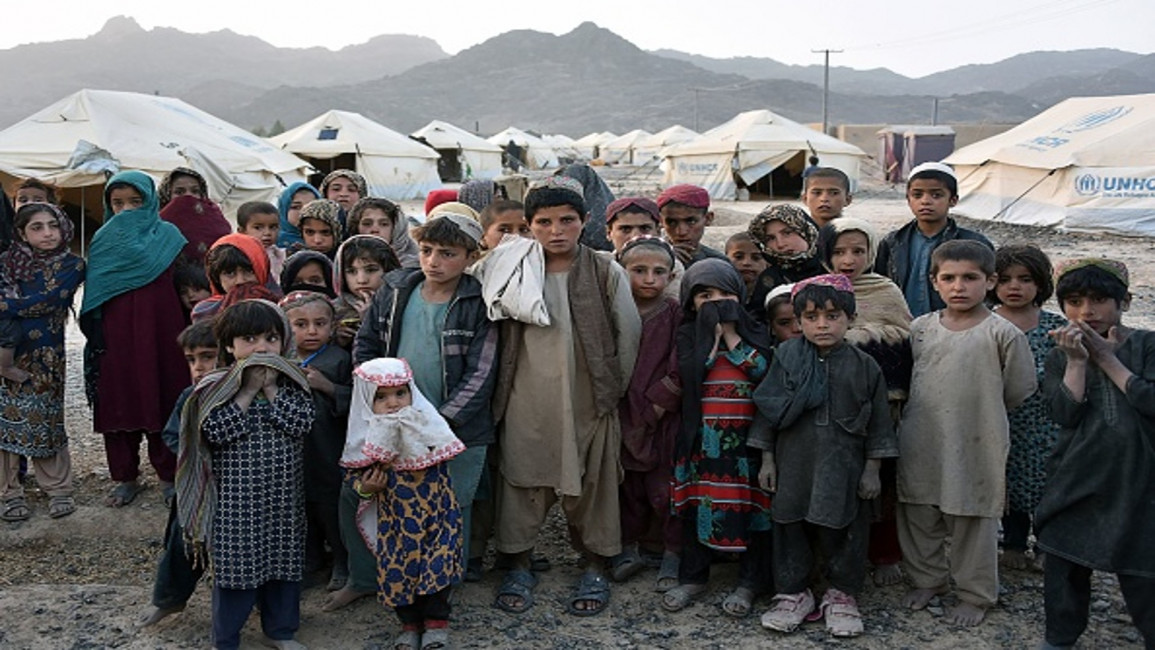Activists across the world launch petitions to help Afghans flee Taliban rule
Activists and citizens across the world have launched petitions to demand their governments protect human rights in Afghanistan and protect activists and workers as Taliban militants take over the capital, Kabul.
Over 58,600 people signed a petition launched by United States-based psychotherapist Nahid Fattahi on Monday calling on US President Joe Biden to "ensure Afghan women's rights alongside peace with the Taliban".
"I know what’s it like to be marginalised and traumatised because of my gender. I am deeply worried that unless the global community comes together, the lives of so many women in Afghanistan will be at risk," she wrote on the petition.
Human rights organisations also sent the State Department spreadsheets with the personal details of thousands of Afghans who do not qualify for the priority visa consideration already announced by the Biden administration but whose lives could be in jeopardy, according to The Washington Post.
More than 24,000 people signed a separate petition calling on the UK government to resettle 20,000 Afghan refugees.
"Right now, women, children, journalists and human rights defenders are fleeing the Taliban. We can follow Canada's lead and offer sanctuary to people escaping Afghanistan," the petition reads.
The UK government must create a safe route for those fleeing Afghanistan.
— Choose Love (@chooselove) August 16, 2021
Sign the petition now: https://t.co/Ba5LsAx1SM pic.twitter.com/xIS5T9ltqC
Canada announced on Friday its plan to resettle more than 20,000 vulnerable Afghans to protect them from Taliban reprisals, according to Immigration Minister Marco Mendicino.
The Home Office in the UK has reportedly put a block on deportations to Afghanistan.
Prime Minister Boris Johnson did not say how many Afghans seeking refuge in the UK for their work with British forces would be resettled.
The Foreign & Commonwealth Office said it was open to considering individual cases.
"We are able to consider individual cases for relocation on an exceptional basis, where there is evidence they are under imminent threat due to the nature of their engagement with the UK," it said, according to The Guardian. However, some say this is unlikely to be enough.
Johnson did say he would intervene to allow Afghan students given scholarships at British universities to enter the UK, after they were blocked by the Foreign Office.
In Australia, a petition was launched to demand that Prime Minister Scott Morrison offer practical assistance to Afghan nationals.
"The time to act is now," the petitioners said, listing among their demands is the transfer of nationals who worked with the Australian mission in Afghanistan, the halting of deportations to Afghanistan, and allocating temporary emergency visas.
"Australia is home to the fourth-largest Hazara population in the world. There are 1000s of people in the Australian community who have family members at grave risk right now from the Taliban," Barat Batoor, a petitioner and organiser at Asylum Seeker Resource Centre (ASRC), said.
"We need to know what the Australian Government is doing alongside the international community to protect people in this emergency."
Iranian and Afghan activists have also signed a letter petitioning the United Nations to "undertake responsible measures" for peace in Afghanistan and protect the rights of its people, particularly women.
The letter, addressed to UN General Secretary António Guterres, called on "the international community" to "hear our voices before the country becomes an even greater disaster for women, and intervene to protect the rights of Afghan people".
It stressed the impact of war on Afghan women, who are at risk of "violence, sexual apartheid, kidnapping, rape, slavery, absolute poverty and injustice".
Amnesty International has also called on the UN to intervene.
"As Afghanistan’s people face up to a stark new reality, the UN Security Council must also adopt an emergency resolution calling on the Taliban – who now effectively control the country – to respect international human rights law, protect civilians, and end reprisal attacks, as negotiations on transitional arrangements continue," Agnes Callamard, Amnesty International’s Secretary General, said.


